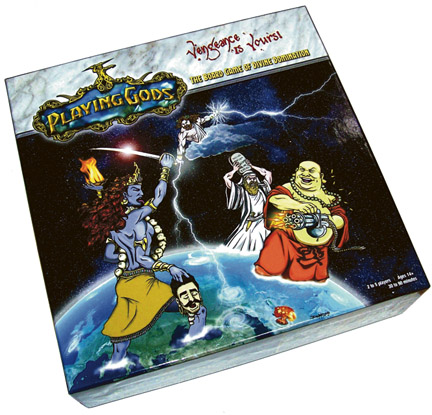Pop Culture: Be A God
Local Board Game Invokes The Sacred To Be Profaned


Latest Article|September 3, 2020|Free
::Making Grown Men Cry Since 1992



